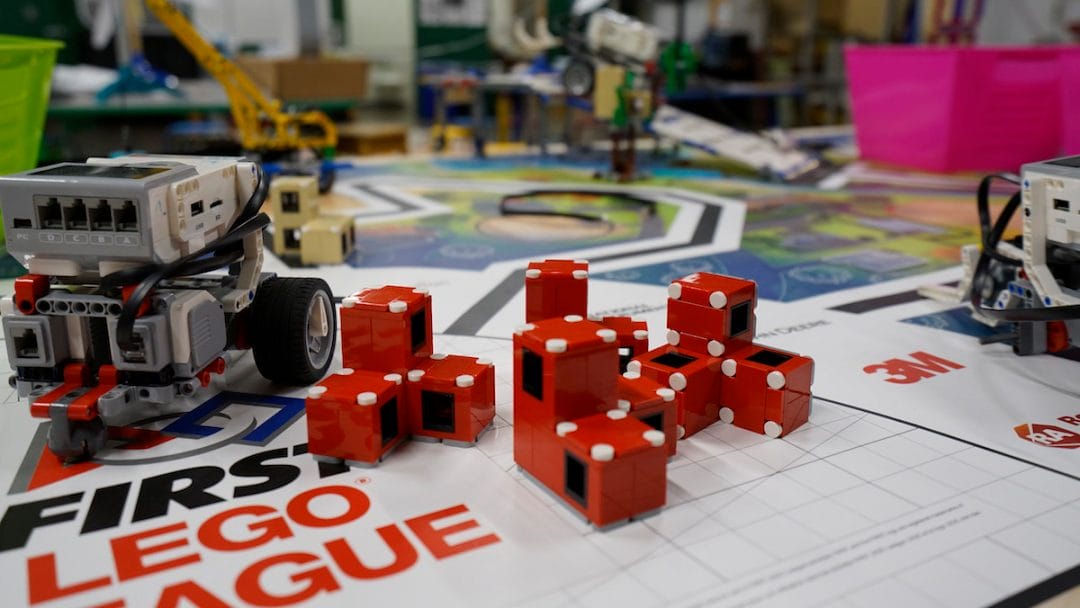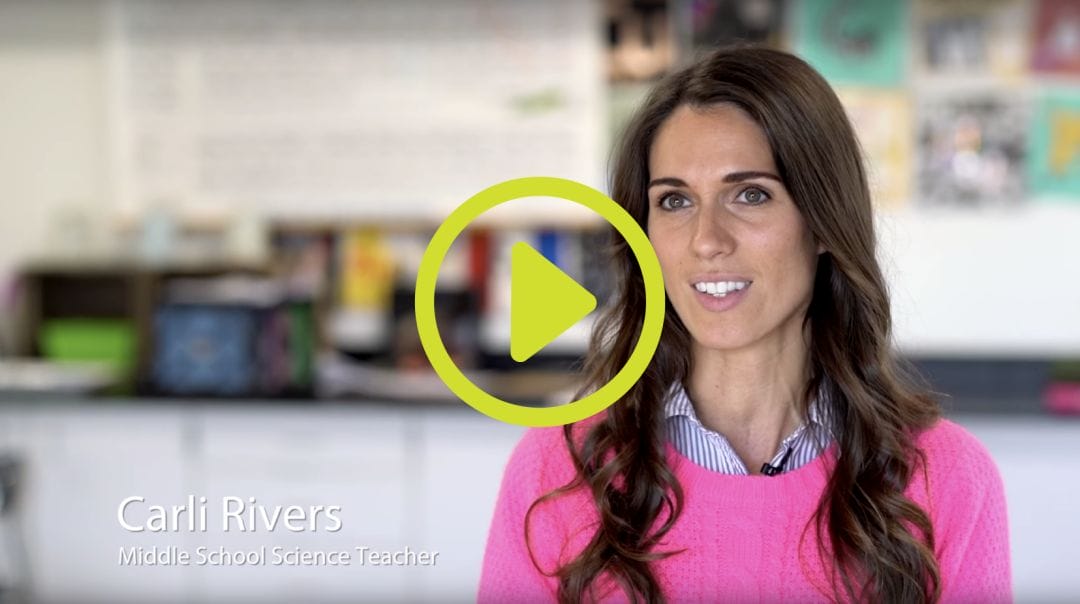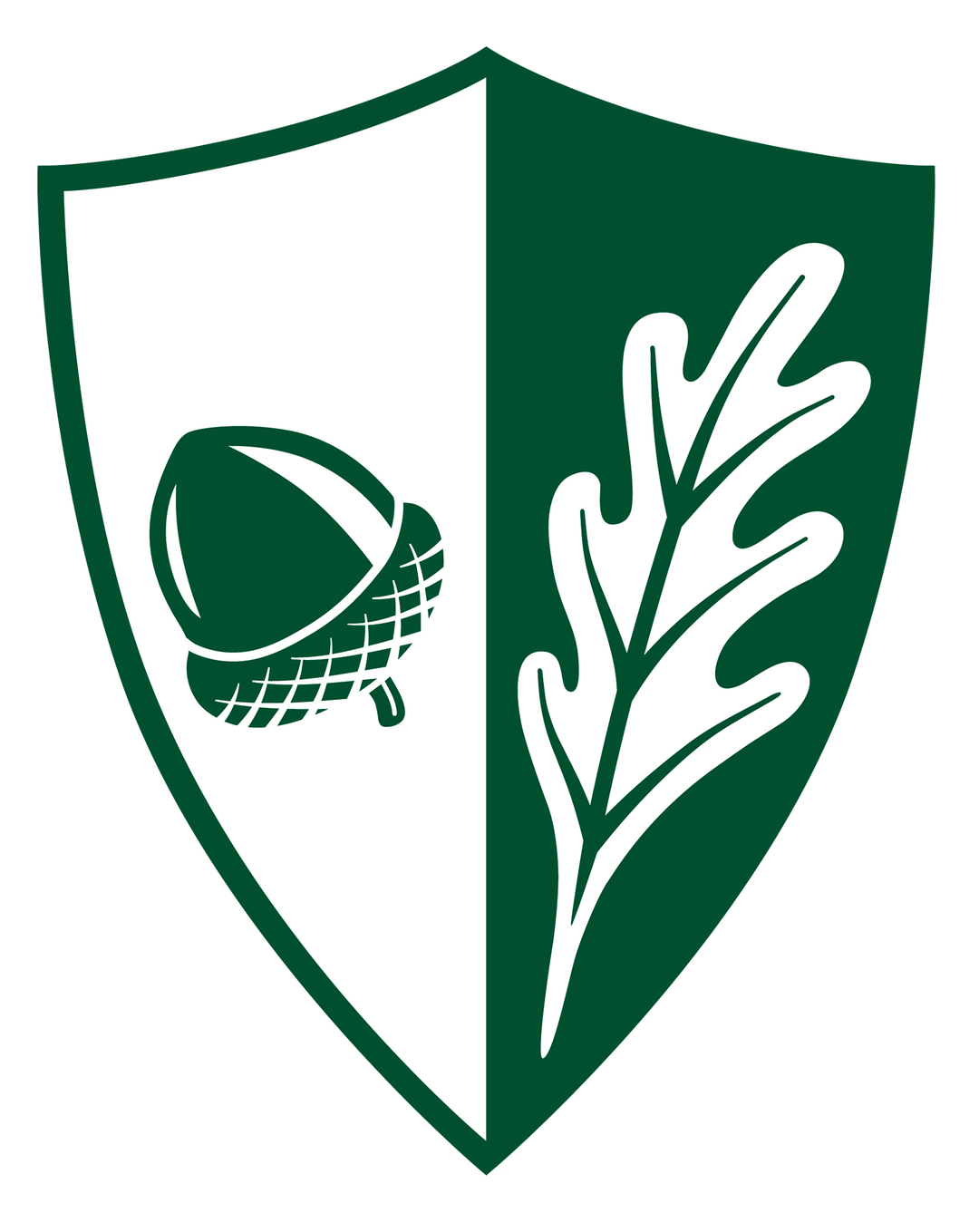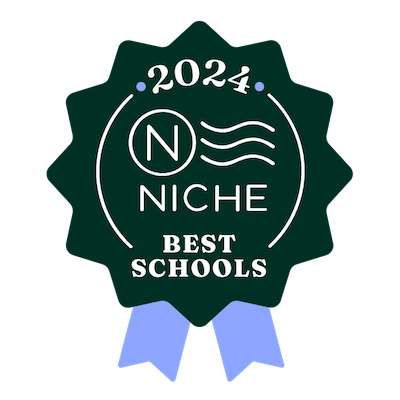Maker Education
Problem- and Project-based Learning
Maker Education at Harley embraces design thinking principles, utilizes multiple resources and skills to solve problems—and from start to finish emphasizes creativity, reflection, collaboration, and authentic assessment.
Aligning Maker Education with Sustainable Approaches
Students consistently explore challenges, pose questions, and aim to generate solutions that are testable and applicable to future situations. While technology is often utilized in maker education, our program also incorporates imagination and cooperation. The Harley School sustainabiity statement is also a vital component of our program, as we seek to align maker education with sustainable approaches that consider the environment, community, and resource management.
Come Explore, Build, Create, and Tinker
The Harley School Maker Education program has many academic spaces that enriches what happens in the classrooms. Harley has two designated maker spaces that include multiple types of microcontrollers, robotics, soldering and circuitry kits, 3D printers, and computers. The Commons makerspace has a traditional workshop with power tools, miter/band/table saws, CNC router, and laser cutter. The visual arts department has large art studios full of maker projects, glass studio, and the center for creative arts digital media lab.
Lower School
Students in the Lower School are thinking and making all the time. Using developmentally appropriate tools, our students build, manipulate, tinker, and experiment with materials and manipulatives to better understand what they are learning and create ways to represent and share that learning with others. The design thinking process is alive and strong in our approach to learning across the subjects as students brainstorm, collaborate, reflect, and adapt their work—all part of maker education. In K-Grade 4, students take technology classes which engage children in both “unplugged” and electronic learning tools and projects.
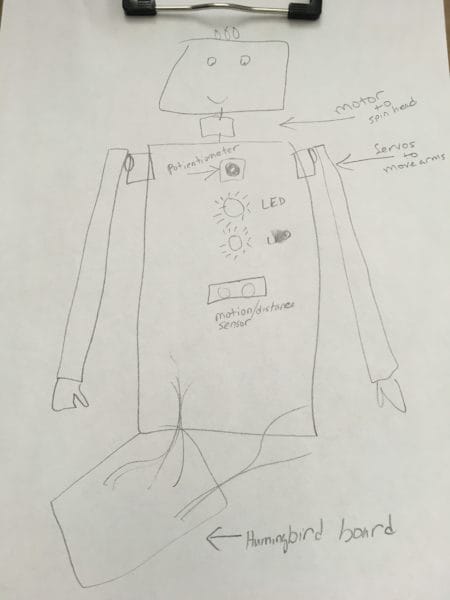
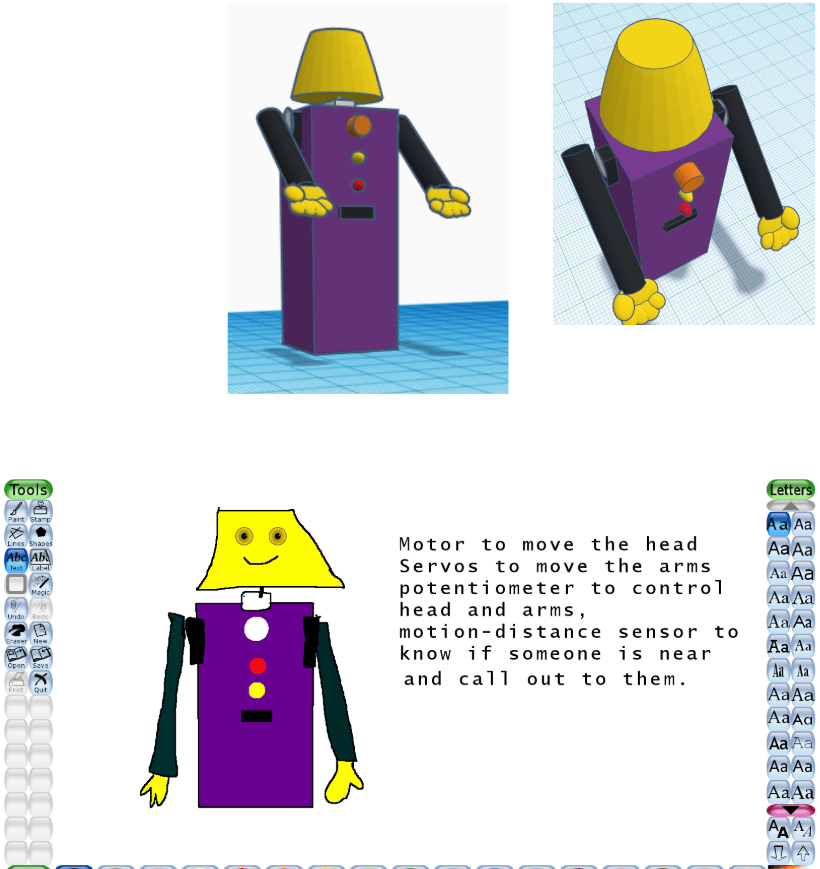
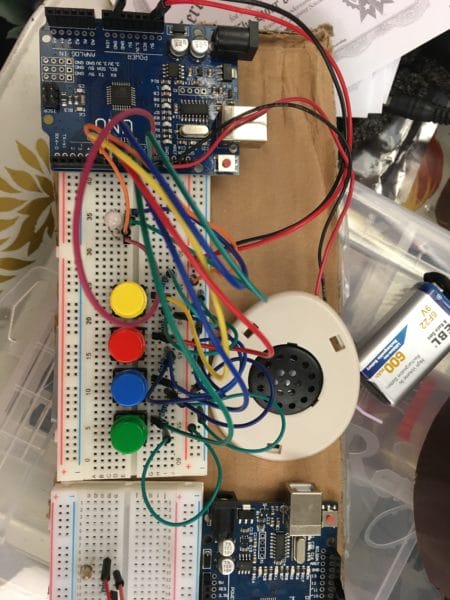
Middle School
Maker education is integrated into the core curriculum and exists in standalone activities and classes. Middle School science classes regularly conduct small hands-on explorations and larger multi-day projects that involve asking questions, creating solutions, and reflection and adaptation.
Core classes utilize block scheduling to engage in maker education projects in our maker space, garden, and teaching kitchen. Standalone courses include: maker mornings, a variety of flex time offerings, and technology classes in Grades 5 and 6.
Our Middle School robotics club participates in FIRST (For Inspiration and Recognition of Science and Technology) Lego League competitions where students work together to code LEGO Mindstorms. The program is built around theme-based Challenges to engaging students in research, problem solving, coding, and engineering.
The makerspace is also used by Middle School during maker mornings for Grade 6, technology class, Flex Time offerings such as: food and farm, mindful makers, capstone, and set design, and during class projects.
Upper School
In Upper School, students have even more opportunity to choose classes that are primarily maker education, such as: food and farm, design and innovation, net zero energy, and living building.
Students can also conduct a capstone project in their senior year, which is directed by maker education philosophy. They have the central voice into what they learn, capstones require a tangible, action based outcome, and the project process engages students in ongoing reflection. There are other opportunities as well, such as biomimicry club and independent studies.
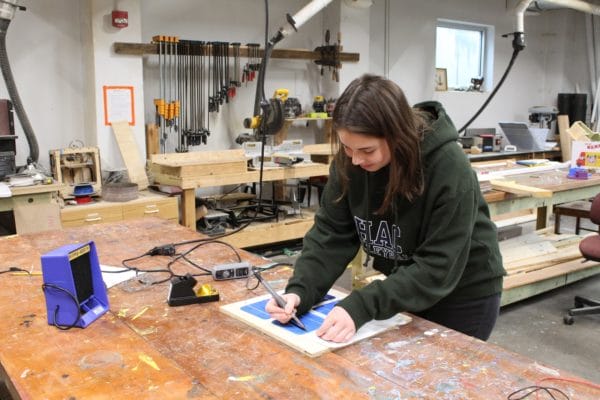
Student project: Exploring how solar panels work by building her own solar panel made of 4 solar cells.
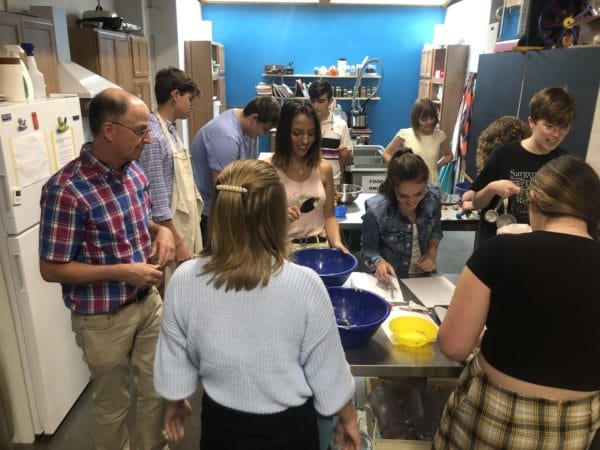
Chemistry class collaborated with the food and farm program to explore how changing ingredients, such as baking soda and baking powder, impacts the texture and taste of cookies.
©2023 The Harley School
 Harley’s Approach to College Counseling
Harley’s Approach to College Counseling “Club Rush” is an afternoon every fall in the Upper School when students have the chance to sign up for clubs for the year, and each year it is very different because new clubs are created based on student initiative and enthusiasm.
“Club Rush” is an afternoon every fall in the Upper School when students have the chance to sign up for clubs for the year, and each year it is very different because new clubs are created based on student initiative and enthusiasm. Each and every year, students at The Harley School participate in HAC Athletics, and their success continues to be impressive, both as students and athletes. Our athletic program is an integral part of Harley, teaching student-athletes invaluable lessons about teamwork, time management, persistence, and competition. Our program allows them to develop physically, mentally, socially, and emotionally as they represent their school on and off the field. They grow, mature, and work hard to be the best teammate they can, while creating lifelong memories with teammates who often remain friends for life.
Each and every year, students at The Harley School participate in HAC Athletics, and their success continues to be impressive, both as students and athletes. Our athletic program is an integral part of Harley, teaching student-athletes invaluable lessons about teamwork, time management, persistence, and competition. Our program allows them to develop physically, mentally, socially, and emotionally as they represent their school on and off the field. They grow, mature, and work hard to be the best teammate they can, while creating lifelong memories with teammates who often remain friends for life.  Our Upper School is filled with formal and informal opportunities for students to take on leadership roles. Whether following passions or learning new skills, student-driven opportunities take many shapes.
Our Upper School is filled with formal and informal opportunities for students to take on leadership roles. Whether following passions or learning new skills, student-driven opportunities take many shapes. Unlike this class, death is not an elective. Although it is one of two universal human experiences, our culture often ignores, denies, or misconstrues the true nature of death and dying. What happens when we bear witness to this natural process in the cycle of life and develop our ability to be fully present with others when they need us more than ever? It has the potential to change us deeply and fundamentally while shining a brilliant light on the path of our own lives.
Unlike this class, death is not an elective. Although it is one of two universal human experiences, our culture often ignores, denies, or misconstrues the true nature of death and dying. What happens when we bear witness to this natural process in the cycle of life and develop our ability to be fully present with others when they need us more than ever? It has the potential to change us deeply and fundamentally while shining a brilliant light on the path of our own lives. This program utilizes environmentally-focused approaches to education and hands-on learning in order to foster the next generation of leaders through a lens of sustainability and problem-solving.
This program utilizes environmentally-focused approaches to education and hands-on learning in order to foster the next generation of leaders through a lens of sustainability and problem-solving. At Harley, our students learn how to evaluate social systems in order to identify complex problems in society through a lens of social justice. They take a hands-on approach to working for a fair, equitable society by researching, exploring and evaluating different perspectives, and offering solutions—both theoretical and practical.
At Harley, our students learn how to evaluate social systems in order to identify complex problems in society through a lens of social justice. They take a hands-on approach to working for a fair, equitable society by researching, exploring and evaluating different perspectives, and offering solutions—both theoretical and practical. Students may create independent studies with supervising teachers throughout their Upper School experience or, during Grade 12, they can design Capstone projects—intensive collaborations with Harley faculty and off-campus mentors—involving rigorous academic study and culminating in public presentations.
Students may create independent studies with supervising teachers throughout their Upper School experience or, during Grade 12, they can design Capstone projects—intensive collaborations with Harley faculty and off-campus mentors—involving rigorous academic study and culminating in public presentations. 

